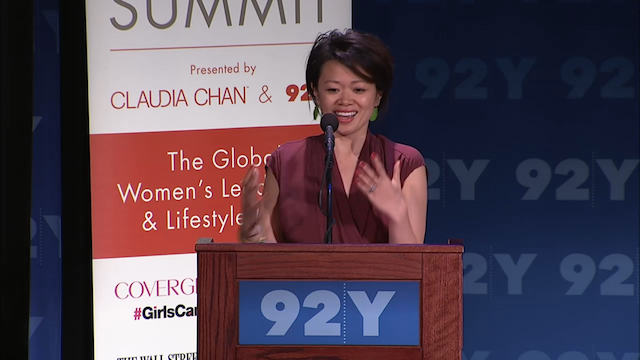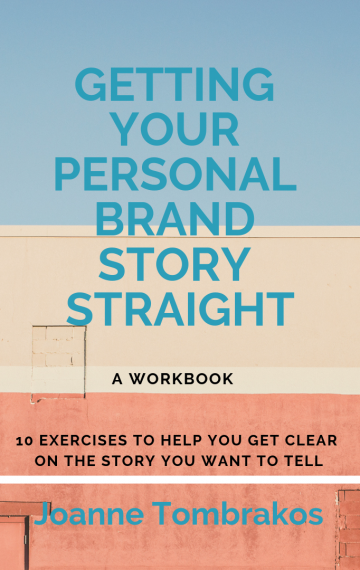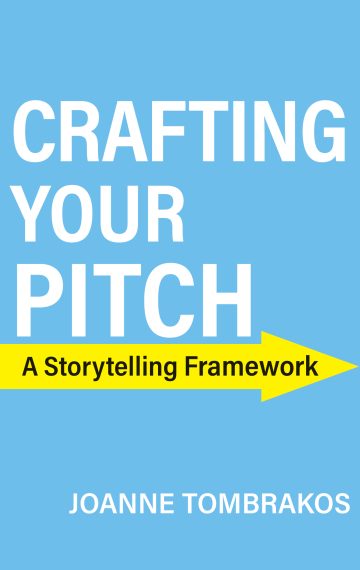It’s that time of the year.
My calendar is full of events and conferences to attend before I go hibernating in January.
A friend who is taking some time off to figure out what she wants to do with the rest of her life recently asked how I optimize my time at these events.
It’s a fair question. When someone else is paying for your ticket it’s easy to just show up without any thought what you will do once you get there. But when it’s your own credit card, there is a bit more to think about it.
Here’s some of the advice I offered her:
Be selective.
Don’t sign up for everything that falls into your inbox or because you think you “should” be at that event. Check the speaker list. Choose events based on what interests you, where you think you can learn something new and where you are most likely to expand your network.
Set Intentions
Once you’ve reserved your ticket decide what you want to get out of this. Write down the three things you most want to walk away with.
Be Prepared
Personally I hate the phrase elevator pitch because it reeks of the stereotype of the pushy and annoying salesperson no one wants to be near. Besides, you don’t go to events to pitch. You go to connect and as we like to say in the world of digital marketing – engage and then if all the stars are aligned you have a new opportunity to follow up with.
You don’t go to events to pitch. You go to connect.
That said, you still need to be prepared as to what you’re going to say when someone asks you what you do. Like the concept of the old elevator pitch and the bio on your Twitter profile, it needs to be brief. Think 140 characters.
You also need to bring business cards. Someone asked me recently if people still used business cards. The answer is yes. I’ve yet to attend an event where someone tells me they no longer carry them. Maybe it’s old school, maybe not. But there is something about the exchange of cards that says you are for real and sets the tone that you really do want to stay connected.
Follow The Event On Twitter.
Most events start chattering online well in advance of the actual day. By listening to what is being said, you’ll start to learn more about who’s attending and more of what you can expect before you even get there. You might even virtually meet some people going in advance that you’ll now be able to connect with offline at the event.
Live Tweet The Event
I believe in taking notes. You will NEVER remember it all. I don’t care how young your brain is! What I find works best for me these days is a combination of notes in a good old-fashioned paper notebook and live tweets. Live tweeting forces me to zero in on my big take-a-ways. The added advantage in live tweeting is that it’s another great way of connecting with people at the event. I’ve often come face to face later in the day with someone who was retweeting me or vice versa.
Live tweeting forces me to zero in on my big take-a-ways.
Dress to Impress
What you’re wearing makes a statement about who you are – for better or for worse. Personally, I know I will work a room better when I like the way I look because for me that instantly makes me feel better. How conservative or trendy you can go depends on the industry. Whatever your style choices my advice is always to choose clothes that are clean, pressed and fit well and say you care enough to care about you. I’m also big on comfort without sacrificing style. The last thing I want to be distracted about at an event I paid money to attend is my shoes hurting or fussing with a skirt that is too tight.
Be Bold
While I view talking to strangers as a great adventure, for many the idea of it makes them break out in a rash. But if you’ve done everything else I’ve suggested it won’t be so scary because you’ll be prepared, confident and owning who you are.
Don’t be afraid to introduce yourself with a smile.
Don’t be afraid to introduce yourself with a smile. Shake someone’s hand and look them in the eye. Confidence attracts. Look for your entre. It could be as simple as a compliment on someone’s shoes (if you really like them!) or as rehearsed as why you were seeking them out. Maybe it was the talk they just gave or someone else suggested you should meet. Ask them what brought them to the event rather than what do you do. The answer might be the same, but it allows for more opportunity to find commonalities.
Above all, use your intuition. The more seasoned at networking you get, you’ll find you’ll be able to gravitate to exactly who you need to meet and they to you. The clearer you are on the intentions you set at the beginning, the easier it will be for you to “work the room” later.
Follow-up
A big mistake many people make is not following up after the event is over. They make all these great new connections and hopefully business opportunities and then they get so caught up in their life afterwards, they forget to send a note or simply connect with them on LinkedIn or they wait so long to do so, that the bloom of that meeting is long gone. To which I say, what was the point of even going if you’re not going to follow through afterwards?
There is no point of even going if you’re not going to follow through afterwards.
Networking is not an option for professional success.
While I am a big advocate and teach others how to navigate networking in the online world, I do so to optimize the in-person moments. In the long run they are still the most fun, most beneficial and what works best.




Leave a Reply